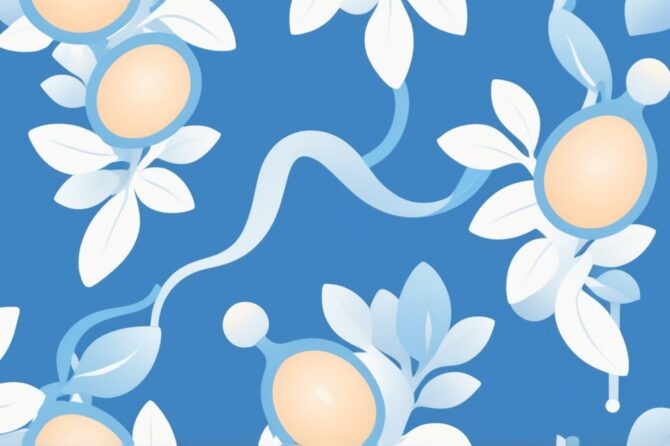
Noni (Morinda citrifolia): Health Effects with Emphasis on Men’s Health
Noni, derived from the tropical plant Morinda citrifolia, has long been used in traditional medicine across Polynesia, Southeast Asia, and beyond. Contemporary interest surrounds its purported antioxidant, anti-inflammatory, and immunomodulatory properties.
1. Introduction and Traditional Uses
Noni (Morinda citrifolia) is a small-to-medium-sized evergreen shrub/tall tree widely cultivated across the tropics. Historically, Polynesian, Southeast Asian, and Aboriginal cultures have used its fruit, leaves, roots, and bark to address ailments such as inflammation, digestive issues, headaches, joint pain, rheumatism, and skin conditions (ScienceDirect, NAFKAM). Common traditional preparations include juice, decoctions, poultices, and topical applications.
2. Phytochemistry and Mechanisms of Action
Bioactive compounds in noni include iridoid glycosides (e.g., asperulosidic acid), anthraquinones (e.g., damnacanthal), scopoletin, flavonoids, and glycosides—all linked to antioxidant, anti-inflammatory, antiproliferative, and immunomodulatory actions (PMC).
Mechanistically, these compounds have demonstrated:
- Antioxidant activity: reduction of oxidative DNA damage, lipid peroxidation, and inflammatory markers (PMC).
- Antitumor potential: inhibition of AP‑1 transcription, tyrosine kinase pathways, and modulation of gene expression involved in proliferation, apoptosis, and angiogenesis (PMC).
- Immunomodulation: enhancement of natural killer cell activity, lymphocyte protection, and inflammation reduction (PMC).
3. Evidence from Human Clinical Studies
3.1 General Health and Antioxidant Effects
Human intervention trials—mainly using French Polynesian noni juice (e.g., Tahitian Noni® Juice, TNJ)—have demonstrated improvements across multiple domains:
- Smokers: significant reduction in oxidative DNA adducts and lipid hydroperoxides; improved lipid profiles, decreased hs‑CRP and homocysteine; increased HDL (PMC).
- Athletes and Sedentary Individuals: enhanced endurance, reduced markers of muscle damage, improved VO₂ max, and joint pain relief (PMC, jppres.com).
- Weight and Metabolic Health: decreased advanced glycation end-products, modest weight/body-fat reduction when combined with lifestyle interventions (PMC).
- Cardiovascular & Oral Health: decreases in blood pressure in hypertensive subjects, improved gum inflammation (gingivitis) (PMC).
3.2 Prostate and Men’s Health
A case series involving six men with low‑risk prostate cancer on active surveillance received 6,200 mg/day of noni capsules for 12 months. Results included:
- Stable serum PSA levels (modest increase from median 7.1 ng/mL to 7.9 ng/mL).
- Favorable modulation of prostate tissue gene expression (including FAM13C, KLK2, GSTM2) and no tumor progression on biopsy (PMC).
Additionally, a Phase I–II clinical initiative at the University of Hawai‘i is evaluating noni extract’s ability to slow disease progression in early-stage prostate cancer, measuring genomic prostate scores pre‑ and post‑treatment (manoa.hawaii.edu).
3.3 Urinary Health
While data is limited, one prophylactic study found that a formulation combining noni extract with D‑mannose and N‑acetylcysteine (NAC) may help reduce urinary tract infections following urological diagnostic procedures (Memorial Sloan Kettering Cancer Center). Another clinical trial observed that noni fruit extract reduced oxidative stress markers (urinary hs‑CRP) in overactive urothelium (OAMJMS).
4. Safety Considerations and Contraindications
- Tolerability: A 28‑day safety trial in 96 healthy individuals found no dose‑related adverse effects up to 750 mL/day of TNJ (PMC).
- Prostate cancer capsules: Mostly well tolerated; one case of moderate diarrhea resolved after a 7‑day pause (PMC).
- Hepatotoxicity concerns: Cases of acute liver injury have been reported in rare individuals using noni juice, though causality remains inconclusive; EFSA found insufficient evidence for direct causation (Wikipedia).
- Cautions: High potassium content—use with caution in renal insufficiency or potassium-restricted individuals. Not recommended during pregnancy due to potential uterotonic/abortifacient effects observed in traditional use and animal studies (NAFKAM).
5. Ingestion Methods
- Juice: Most human studies use standardized noni juice beverages (e.g., Tahitian Noni® Juice) in volumes ranging from ~30 mL to several hundred milliliters daily (PMC).
- Encapsulated extracts: Used in prostate‑focused studies (~6.2 g/day) (PMC, manoa.hawaii.edu).
- Combination formulations: Used for urinary prophylaxis; includes noni extract blended with other actives like NAC and D‑mannose (Memorial Sloan Kettering Cancer Center).
6. Conclusions and Future Directions
Noni exhibits promising antioxidant, anti-inflammatory, immunomodulatory, and possibly prostate-supportive effects. Preliminary human studies suggest safety in healthy individuals and potential benefit in specific populations. However, evidence remains limited, especially in male-specific domains like prostate cancer progression and urinary health. Future rigorous, randomized controlled trials are needed, with well-characterized formulations and dosage standardization. Safety monitoring—including liver function and potassium balance—is advised.
Leave a reply

My comment has to do with post postrate organ removal operations loss of erection. What can be done to reverse my male organ weakness
Reply